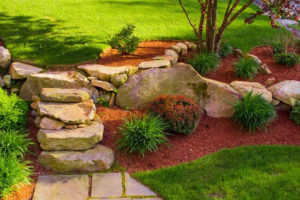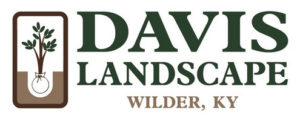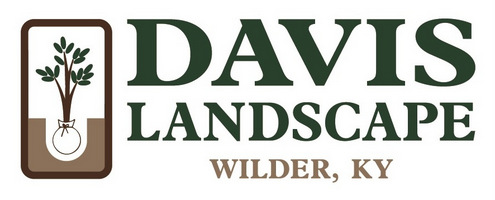
The three different types of mulch available are bark mulch, stone, or living groundcover. To help decide which option is best for your property, we will break down the options and briefly describe the pros and cons of each.
Organic Shredded Mulch
Garden mulch options can more or less be broken down into two categories: organic or inorganic mulch products. Organic mulch includes natural materials such as leaves, straw, bark, pine needles, and other plant byproducts like cardboard or paper. These things break down over time and will eventually be incorporated into the soil itself – providing nutrients in the process. Mulch provides important health benefits to soil and plants.
Benefits of Using Shredded Mulch:
- Shredded mulch cuts down on weeds.
- It will break down over time to feed the soil.
- Shredded mulch retains moisture during periods of drought.
- This type of mulch lowers the temperature of the soil during the hot summer.
- Shredded mulch gives a finished look to the landscape.
Cons of Using Shredded Mulch:
- Because it eventually breaks down, bark mulch does have to be replenished every so often. The frequency varies greatly though, depending on your climate and the size or type of bark mulch used.
- Decorative colored bark may have been treated with chemical dyes, making it unsuitable for organic edible gardens. (Though some are colored with non-toxic dyes.)
- Buying bagged bark to mulch large spaces creates unnecessary plastic waste. Most landscape supply companies will deliver and drop off as little as half a yard!
Organic Groundcover Plants
Groundcover plants make a perfect mulch.
Benefits of Using Groundcover Plants:
- These ground huggers hold in moisture.
- They keep weeds at bay and look good in the process.
- Many are fine sources of pollen and nectar for pollinator insects.
- They are great for embankments because they have a stable root system.
Cons of Using Groundcover Plants:
- Slugs, snakes, snails, and pests, make these floras their habitats. For instance, if the area is popular with slugs, it is not advisable to grow them.
- They compete for water and fertilizer with other plants.
- You should choose them carefully for your garden. The reason is, that if the ground cover is very vigorous in growth, it can over-run the vegetation that you want to grow.
Inorganic Gravel or River Rock
River rock is a type of washed gravel known for its smooth, rounded texture and versatility. River rocks come in a range of sizes but are typically one to two inches in diameter. Creative landscapers choose to use river rock for landscaping because of its wide range of beautiful and practical applications. Gravel mulch prevents soil from eroding and provides a stable surface. Gravel mulch is a material used for landscape driveways, walking paths, and flower beds. The different types of gravel mulch include crushed gravel, stone gravel, pea gravel, and chips. Rock will never break, nor will it improve your soil and the rock does not have to be replaced.
Benefits of Using Inorganic Gravel or River Rock:
- The biggest advantage is erosion prevention. If you have a slope it will stand up to rainfall better if you use rock or grave.
- Dry areas benefit from using gravel mulch as it allows for plants to thrive with natural rainfall.
Cons of Using Gravel or River Rock:
- Rocks and other stone-based ground covers are generally heavier than the soil upon which they’re placed. Over time, the rocks can start to sink deep down into the soil.
- If you’re using stone-based ground covers near areas that are mowed or trimmed, the lawnmower or trimmer can catch on the rocks and fling them into the air. These flying projectiles can create a significant hazard for you and your family.
- Rocks absorb and retain the heat they also reflect a lot of heat off of their exposed surfaces. The combination of the two factors can increase the day and evening temperatures in the area and in the soil.
Best Choice For You
Now that you know the many benefits of mulching, the choice boils down to your taste, design, and individual circumstances. It may benefit your home to use a combination of different materials. Use mulch for level areas and stone for erosion areas. If your home will look better with a colorful bed of annuals, then bulk mulch is your choice. However, if you lean more toward the modern look, a crisp bed of rock with ornamental grasses may be your style. Whatever your choice, mid-to-late spring is the best time to put down mulch. A fresh blanket of mulch makes your landscape look polished.
Contact Us (859-781-0677) for More Information!
—

About Davis Landscaping
Davis Landscape Design & Installation has been providing landscaping services to customers in Northern Kentucky and Greater Cincinnati since 1965! We know that the landscape design process can be overwhelming, so we work with you tirelessly to better understand your vision. At Davis Landscape Design & Installation, we’re on your team and we know how to listen and deliver.
